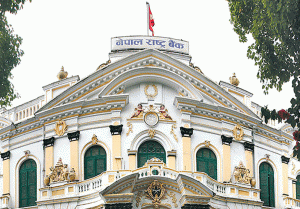
Op-ed editors of broadsheet dailies published in Kathmandu on Sunday have paid attention to a wide range of issues such as Dr Govinda KC’s fast-unto-death and the impact of government change on bureaucracy.
The deeper meaning of Govinda KC’s fast

Prominent academic Abhi Subedi dedicates his piece for The Kathmandu Post to explaining the deeper implications of Dr Govinda KC’s hunger strike. Subedi says, “Dr’s KC’s Satyagraha has begun to evoke very serious ideological and practical questions in today’s context of what the Berkeley political science professor Wendy Brown explores in her recent book, Neoliberalism’s Stealth Revolution, about the undoing of democracy.
Subedi says that Dr KC’s strike and the involvement of youth in it is a testament that young people are organising themselves into political forces and this gives hope for the future.
US role in Indo-China standoff

Surendra Pradhan in his lead opinion for Annapurna Post says that the growing coziness between the US and India is a departure from the past when New Delhi was a close ally of Russia, the only country in the world capable of challenging the United States’ military supremacy. Similarly, India’s recent diplomatic push to improve ties with Israel could lead to sore relations with Iran and Saudi Arabia.
In this context, the territorial dispute between China and India could be transformed into a cold war. He says that since India does not have warm relations with its neighbours, it will be easier for China to extend its influence in South Asia. Similarly, China, which has been investing heavily in Africa and Latin America, could now focus its attention on South Asia, where it needs to counter India.
Why does the army need a radio ?

In his piece for Naya Patrika, Laxman Khadka, treasurer of Association of Community Radio Broadcasters Nepal, questions the recent announcement by the Nepali Army that it wants to operate a radio station. Khadka says that the Nepali Army has already started running an FM station in Dipayal Silgadhi. He says it was a grave mistake to allow the army to operate radio stations. The army claims that it will use the radio transmission to spread awareness on conservation of wildlife and forests and to provide information in times of emergencies such as flood and earthquake. All this work can easily be done by community radio stations in the country. The army’s main job is to carry guns, and it should stick to it, not try to wield the reporters’ pen, he concludes.
Effect of government change on bureaucracy

Gunaraj Luitel in his lead op-ed for the day for Nagarik argues that the bureaucracy does not heed the orders of the political leaders when they know that the government is going to change in a matter of months. He says that because Prime Ministers change frequently, bureaucrats have become more powerful than the representatives of the people.
Swarnim Wagle interview

The day’s Kantipur has a full-page interview with Swarnim Wagle, who was recently appointed Vice-chairman of the National Planning Commission. Wagle says that periodic plans are no longer relevant to Nepal. He says the government should introduce a new Act to manage projects of national pride. He proposes that Nepal set a target for 2030 and work towards it. Similarly, he concedes that the National Reconstruction Authority has not been given enough teeth to carry out its work.
























